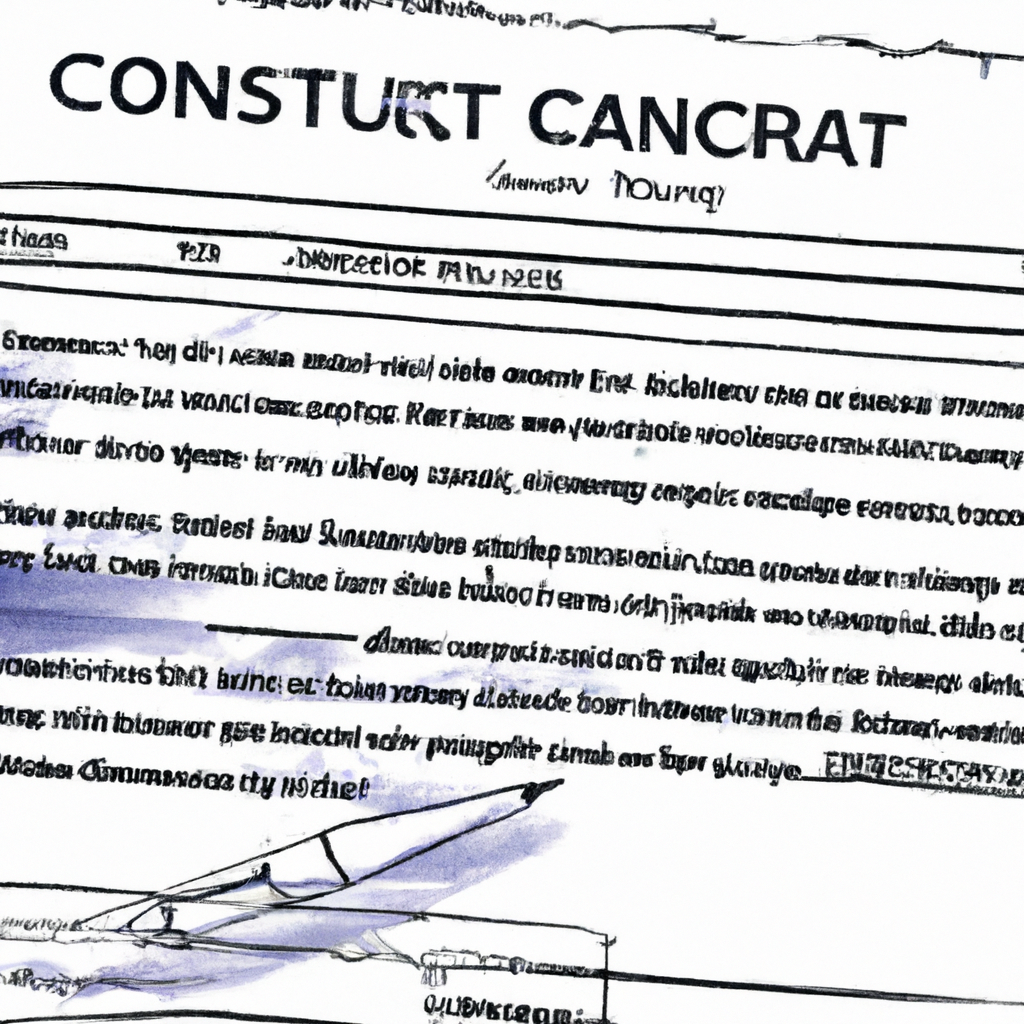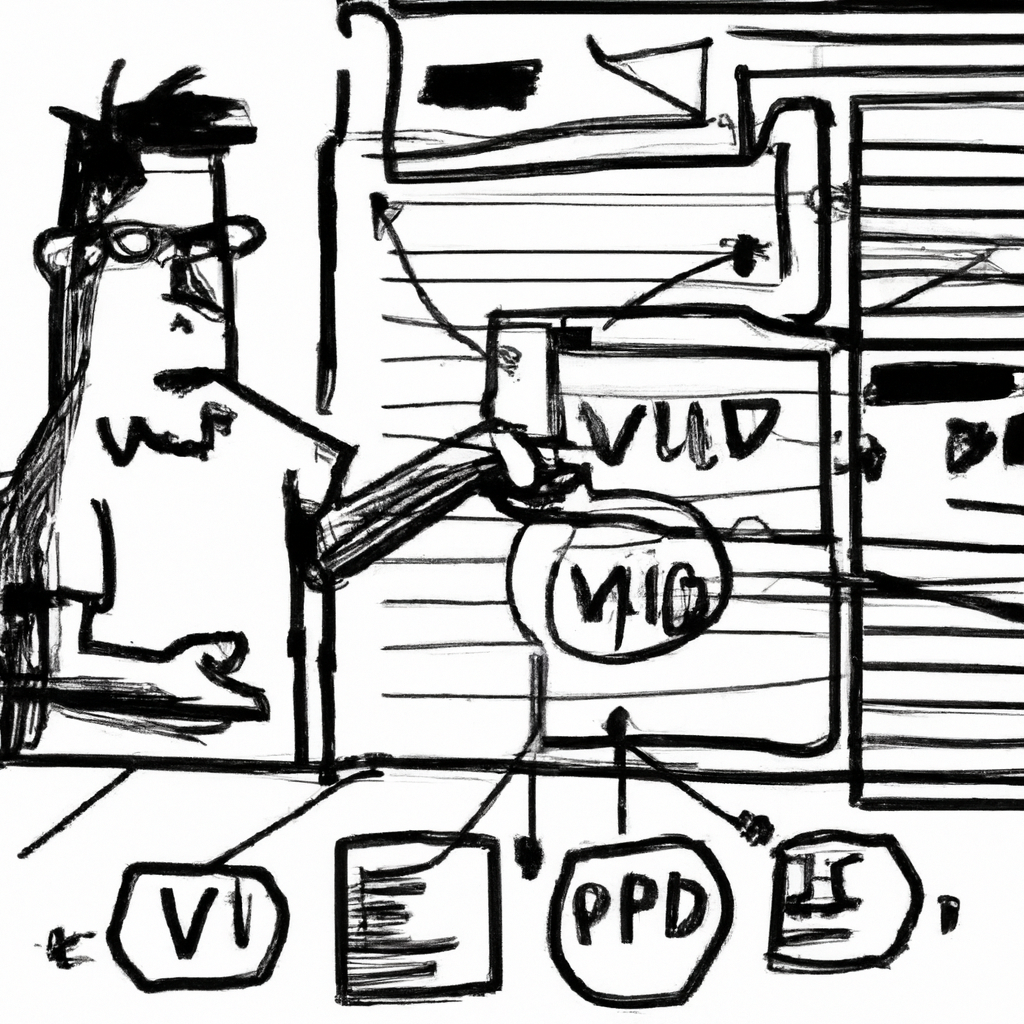Dear Readers,
AI plays a crucial role in our blog, helping us manage our time more effectively to keep the content flowing. While AI assists with content creation, which may lead to occasional spelling or grammar errors, our primary goal remains clear: to deliver meaningful insights to you. For important matters, please consult a specialist.
Thank you for your understanding and support.
Best regards,
Education.com.cy
Summary
In the dynamic world of web development, proper contracting is a cornerstone for successful project execution and client satisfaction. This article delves into the critical aspects of establishing clear, comprehensive contracts between web developers and their clients. It highlights the common pitfalls that arise from inadequate contracting and offers practical solutions to mitigate these issues. By understanding the nuances of contract creation, both developers and clients can foster a more productive and harmonious working relationship.
Introduction
In the fast-paced world of web development, proper contracting is often overlooked, yet it is one of the most critical aspects of ensuring a successful project. Contracts serve as the foundation for the relationship between the client and the developer, outlining expectations, deliverables, timelines, and compensation. Without a well-structured contract, both parties can face numerous challenges that can derail the project and lead to dissatisfaction. This article delves into the importance of proper contracting in web development, highlighting key elements that should be included in every contract and the potential pitfalls of neglecting this crucial step.

The Role of Contracts in Web Development
Defining Scope and Deliverables
Contracts serve as a formal agreement that outlines the responsibilities, expectations, and deliverables for both parties involved in a web development project. They are essential for:
- Defining Scope and Deliverables: A well-drafted contract clearly specifies the project scope, including the features and functionalities to be developed. This helps in managing client expectations and prevents scope creep, where clients request additional features beyond the agreed-upon terms.
- Setting Timelines and Milestones: Contracts should include a detailed timeline with specific milestones. This ensures that both parties are aligned on the project schedule and can track progress effectively.
- Establishing Payment Terms: Clear payment terms, including the total project cost, payment schedule, and any additional costs for extra features, are crucial. This prevents financial disputes and ensures that developers are compensated fairly for their work.
- Outlining Responsibilities: Both the developer and the client have specific roles and responsibilities. Contracts should delineate these roles to avoid confusion and ensure smooth project execution.

Common Issues Arising from Poor Contracting
Scope Creep and Uncontrolled Revisions
One of the main issues with poor contracting is scope creep, where clients continuously request additional features or changes without understanding the additional costs and time involved. This can lead to increased workload, extended timelines, and additional costs. A robust contract includes provisions for handling scope changes, such as a change request process and associated costs. By clearly outlining how scope changes will be managed, developers can protect themselves from being overburdened and ensure that any additional work is appropriately compensated.
Misunderstanding of Costs and Functions
Clients often do not understand the difference between simple and advanced functions, leading to disputes over costs and the extent of work required. They may expect complex features to be included at no extra charge, resulting in disputes and dissatisfaction. A clear contract should break down the costs of different functionalities and explain the rationale behind these charges. This transparency helps clients understand the value of the services provided and reduces the likelihood of disputes over costs.

Best Practices for Effective Contracting
Clear and Detailed Agreements
Effective contracts should be clear and detailed, leaving no room for ambiguity. This includes specifying the scope, deliverables, timelines, and costs. By explicitly stating what is and isn’t included in the project, both parties can avoid scope creep, where the client continuously adds new tasks without additional compensation. This clarity helps in setting realistic expectations and ensures that the developer is adequately compensated for their work.
Regular Communication and Updates
Maintaining regular communication with the client to provide updates and address any concerns is crucial. This helps in managing expectations and building trust. A robust contract should establish a communication plan, detailing how often updates will be provided, the preferred communication channels, and the process for providing feedback. This ensures that both parties are on the same page throughout the project.

Case Studies
Successful Contracting Examples
A case study of a web development project where clear contracting led to successful project completion, client satisfaction, and repeat business. For instance, a mid-sized retail company wanted to launch an online store and approached a web developer. The developer recommended a platform they were familiar with, but it was not the best fit for the client’s needs. As the project progressed, the client realized that the platform lacked certain functionalities crucial for their business. This led to additional costs and delays as the developer had to implement custom solutions. The developer and client had to revisit the contract and make amendments to accommodate the new requirements. The developer also had to spend extra time and resources to implement the necessary functionalities. This case underscores the importance of thorough platform evaluation and selection based on the client’s specific needs.
Lessons Learned from Poor Contracting
An example of a project that suffered due to inadequate contracting, highlighting the issues faced and the lessons learned. For instance, a small business owner, eager to expand into the online market, hired a web developer to create an e-commerce site. The client had minimal understanding of the complexities involved in running an online store and believed that launching the site would result in immediate profits. The client expected the site to be fully functional with advanced features at a minimal cost. They did not understand the difference between basic and advanced functionalities and demanded numerous revisions without additional compensation. This led to a strained relationship between the client and the developer. The developer had to spend extra time educating the client about the costs and efforts involved in implementing advanced features. They also had to renegotiate the contract to include clauses for additional revisions and feature requests. This case highlights the importance of setting realistic expectations and clearly defining the scope of work in the contract.

Conclusion
Proper contracting is not just a formality but a critical component of successful web development projects. By investing time and effort in drafting comprehensive contracts, developers and clients can avoid common pitfalls, ensure smooth project execution, and build long-lasting professional relationships. As the web development landscape continues to evolve, the importance of proper contracting cannot be overstated. Clear communication, realistic expectations, and well-defined roles and responsibilities are essential for successful project outcomes. By learning from these real-world examples, both developers and clients can avoid common pitfalls and build a strong foundation for their e-commerce ventures.

Thank you for reading our article on The Importance of Proper Contracting in Web Development. We highly value your feedback and invite you to take a brief survey to share your thoughts and experiences. Your responses will be kept confidential.
Dear Readers,
Welcome to my blog, where technology, music, and visual arts come together to spark creativity and growth. By subscribing, you’ll become part of a vibrant community committed to exploring and learning in these areas.
Select the type of engagement that suits you best:
Join us and enjoy tailored content and direct support suited to your interests.
